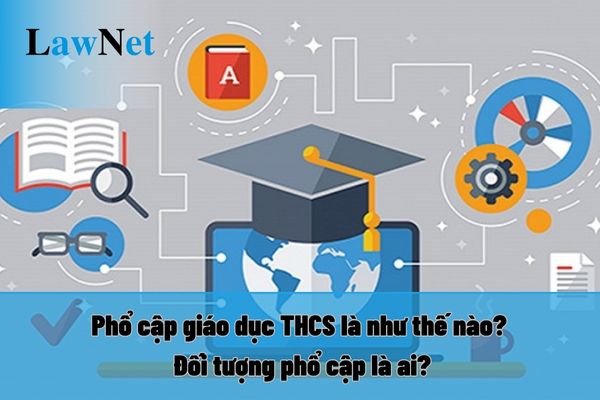Vietnam: What are the "universalization of secondary education” and entities thereof?
What are the "universalization of secondary education” and entities thereof?
According to Clause 8, Article 5 of the Education Law 2019 of Vietnam:
Definitions
In this Law, the undermentioned terms shall be defined as follows:
...
“Universalization of education” means organizing educational activities in the way that ensures all citizens of suitable age have access to education and acquire certain qualifications as prescribed by law.
Additionally, according to Article 14 of the Education Law 2019, regulations on universalization of education and compulsory education are as follows:
Universalization of education and compulsory education
1. Primary education is compulsory.
The State shall provide the universalization of preschool education to 05-year-old children and provide the universalization of lower secondary education.
2. The State shall be responsible for implementing compulsory education throughout the country; planning and facilitating the universalization of education.
3. All citizens within defined age groups shall have the obligation to learn in order to contribute to the universalization of education and complete the compulsory education programme.
4. Families and guardians shall enable their members in defined age groups to receive education in order to contribute to the universalization of education and complete the compulsory education programme.
At the same time, Article 12 of Decree 20/2014/ND-CP of Vietnam's Government also stipulates the subjects of secondary educational popularization as follows:
Subjects of universalization of secondary education
Subjects of universalization of secondary education are youth aged 11 to 18 who have completed primary education but have not graduated from secondary school.
In light of the above regulations, educational popularization is the process of organizing educational activities so that all citizens within the age range have the opportunity to study and achieve a certain educational level.
To be specific, the age here ranges from 11 to 18 years who have completed primary education but have not graduated from secondary school.

What are the "universalization of secondary education” and entities thereof? (Image from the Internet)
What are the ccriteria for recognized standard achievement of secondary educational universalization at level 2?
According to Article 15 of Decree 20/2014/ND-CP, criteria for recognized standard achievement of secondary educational universalization at level 2 is as follows:
Criteria for recognized standard achievement of secondary educational universalization at level 2
1. For communes:
a) Ensuring the criteria for recognized standard achievement of secondary educational universalization at level 1;
b) The percentage of youths and teenagers from 15 to 18 years old graduating from secondary educational level must reach at least 90% and 80% for extremely difficult social-economic conditions.
2. For districts: At least 95% of communes must be recognized to have met the standard of secondary educational universalization at level 2.
3. For provinces: There must be 100% districts recognized to have met the standard of secondary educational universalization at level 2.
Thus, level 2 secondary educational popularization conditions are divided as follows:
For communes:
- Ensuring the standards for recognizing level 1 secondary educational popularization;
- The rate of youth aged 15 to 18 graduating from secondary school reaches at least 90%, for communes with specially difficult socio-economic conditions at least 80%.
For districts:
- At least 95% of communes reach level 2 secondary educational popularization standards.
For provinces:
- 100% of districts reach level 2 secondary educational popularization standards.
How is secondary educational popularization funded?
According to Article 96 of the Education Law 2019, regulations on state budget for investment in education are as follows:
State budget for investment in education
1. The State shall give first priority to the allocation of state budget for education, ensuring that educational and training expenditures take up at least 20% of the State budget.
2. The State budget for education must be allocated on the principles of transparency and democracy, based on the educational scale, socio-economic development conditions of each region; securing budget for universalized education, educational development in ethnic minority areas and areas with exceptional socio-economic difficulties.
The State shall be responsible for the full and timely allocation of budget so as to facilitate the universalization of education and to meet the progress of the school year.
3. Education authorities and educational institutions shall be responsible for effective management and use of the allocated budget for education and other incomes as prescribed by law.
Thus, secondary educational popularization is ensured by the state budget.
Meanwhile, the State is responsible for fully and promptly allocating funds to implement educational popularization and in line with the academic year's progress.

